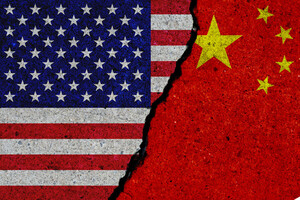A record $4.2 billion will be poured into influencing U.S. lawmakers in 2023, with the pharmaceutical and health products industry the largest donor, according to industry data.
The Korea Biotechnology Industry Promotion Organization (KoreaBIO), the country’s leading organization in the biotechnology industry sector, released the report on Tuesday, citing data from OpenSecrets, a Washington, DC-based nonprofit that tracks political funding.
According to an OpenSecrets analysis, “healthcare companies will spend more than any other sector in 2023, with spending on U.S. federal lobbying topping $739 million for the year.”
U.S. healthcare companies led all sectors in federal lobbying in 2023, with spending surging to $739 million. (Source: OpenSecrets analysis of 2023 Lobbying Disclosure Act filings)
Among the key players are China’s two largest contract research, development and manufacturing organizations (CDMOs), WuXi Biologics and its subsidiary WuXi AppTec, whose lobbying spending has skyrocketed amid the looming threat of the US Biosecure Act.
The Biosecure Act aims to protect national security by prohibiting certain U.S. government agencies from procuring equipment or services that use so-called “biotechnologies of concern,” such as those from WuXi AppTec and WuXi Biologics, due to concerns that the People’s Liberation Army (PLA) could use these technologies for military purposes.
“The law reflects deep-rooted concerns about civilian technology enhancing military power and China’s growing competitiveness in biotechnology,” said Oh Ki-hwan, senior managing director of industry policy at KoreaBio.
However, the Biosecure Act missed its first chance to be considered in Congress after the House Rules Committee removed it from the annual spending bill in the National Defense Authorization Act of 2025 (NDAA). Despite its removal from the NDAA, House Speaker Mike Johnson (R-Louisiana) has committed to introducing the bill to Congress in the fall. In a speech to the conservative think tank Hudson Institute on July 8, Johnson highlighted the Biosecure Act as one of his top China-related legislative priorities.
The bill has bipartisan support and is moving quickly through Congress, moving toward becoming law, Oh said. “Johnson has made it clear that he expects the bill to pass regardless of which party is in power after the 2024 US congressional and presidential elections.”
The stakes are high, the battle lines are drawn, and the pharmaceutical industry is scrambling to counter the threat.
Led by the pharmaceutical and health industries, a record $4.2 billion was pumped into federal lobbying last year, with major companies such as WuXi AppTec and WuXi Biologics significantly increasing spending in response to the looming BIOSECURE Act. (Credit: Getty Images)
KoreaBIO said, based on its Lobbying Disclosure Act (LDA) reports, that WuXi AppTec’s lobbying spending surged from $100,000 in the fourth quarter of 2023 to $360,000 in the second quarter of 2024.
WuXi Biologics is not far behind, planning to increase its lobbying budget from $40,000 in the third quarter of 2023 to $165,000 by the second quarter of 2024, according to KoreaBIO.
With Wuxi AppTech and Wuxi Biologics subject to the BioSecure Act, US companies will be hit hard. Wuxi AppTech and Wuxi Biologics’ revenues are also likely to plummet given that the majority of their transactions are with US companies, Oh said. He said survey results from global consulting firm LEK Consulting revealed that global life science companies’ trust in Chinese companies has declined significantly, especially in the CDMO sector, prompting many companies to take precautionary measures.
After a US Biotechnology Innovation Organization (BIO) study suggested it could take up to eight years for biopharmaceutical companies to switch from Chinese CDMOs, the new draft bill sets a deadline of 2032 for US companies to sever ties with high-risk Chinese biotech companies and their subsidiaries, parent companies, affiliates and successor companies. Oh said companies are now looking at alternatives such as Indian pharma CDMOs to avoid the risk of being barred from entering the US market.
Large global biopharmaceutical companies have fueled a surge in pharmaceutical lobbying efforts with increased scrutiny of prescription drug benefit managers (PBMs), which they see as a major obstacle to lowering drug prices. The battle to keep drug prices high and protect profit margins is fierce. “PBMs have resisted change, which has led to increased government pressure to lower drug prices by targeting these organizations,” Oh said.
According to OpenSecrets, health care remains the top spending sector at both the federal and state levels, continuing a trend that began in 2019. Spending is expected to surge further in the coming months as scrutiny on prescription drug management and regulatory issues increases. With biosafety legislation in the spotlight, biotech and pharmaceutical companies are poised to step up their lobbying efforts.
“The pharmaceutical industry will continue to account for a large portion of lobbying spending this year,” Oh said.

